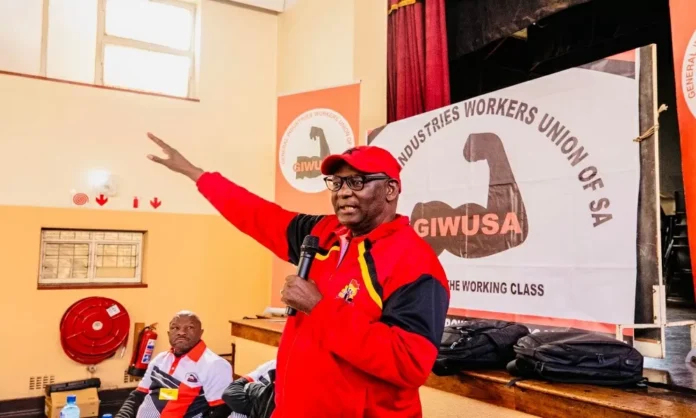The South African Federation of Trade Unions (SAFTU) has recently expressed their concerns about the National Dialogue, stating that it will not meet the demands of the working class. This statement comes after President Cyril Ramaphosa announced the launch of the National Dialogue, which aims to address the challenges facing the country and find solutions through collaboration with various stakeholders.
SAFTU, which represents over 800,000 workers in South Africa, believes that the National Dialogue is not inclusive enough and will not accurately represent the needs and struggles of the working class. In their statement, SAFTU highlighted the exclusion of key trade unions, community organizations, and grassroots movements from the dialogue, stating that their voices will not be heard.
The trade union also expressed their disappointment in the lack of concrete plans and actions outlined in the National Dialogue. They believe that the dialogue is simply a talk shop and will not bring about any real change for the working class. SAFTU further criticized the lack of representation of workers’ issues, such as the need for a living wage, improved working conditions, and job security, in the dialogue agenda.
SAFTU’s concerns are valid and reflect the frustration and disappointment of the working class in South Africa. For far too long, the working class has been neglected and their demands for a better quality of life have been ignored. The high rates of unemployment, poverty, and inequality in the country are a testament to this neglect.
The National Dialogue should be a platform for all voices to be heard, especially those of the working class. It should be an opportunity to address the root causes of these issues and find sustainable solutions. However, with the current exclusion of key stakeholders, it is unlikely that the dialogue will achieve its intended goal of addressing the challenges facing the country.
SAFTU has called on the government to take immediate action to address the concerns raised by the trade union. They have also urged the government to involve all stakeholders in the dialogue to ensure that the needs and struggles of the working class are adequately represented.
The working class is the backbone of our economy and society. They are the ones who keep our country running, yet their voices and demands are often ignored. It is time for the government to prioritize the needs of the working class and take concrete actions to improve their lives.
The National Dialogue should not be seen as a mere public relations exercise, but rather as a genuine effort to bring about positive change for all South Africans. It is crucial that the dialogue addresses the structural issues that contribute to the challenges facing the working class, such as the exploitation of workers, the lack of decent jobs, and the growing income inequality.
SAFTU’s criticism of the National Dialogue serves as a wake-up call for the government to take urgent action and involve all stakeholders in finding solutions to the challenges facing the country. The working class deserves to have their voices heard and their demands met. It is time for the government to show a genuine commitment to addressing the needs of the working class and building a better South Africa for all.
In conclusion, SAFTU’s concerns about the National Dialogue should not be ignored. The working class deserves a seat at the table and their demands must be taken seriously. The government must strive to include all stakeholders in the dialogue and work towards finding sustainable solutions that will improve the lives of the working class. Let us not forget that a better South Africa can only be achieved when the needs of the working class are prioritized and addressed.

